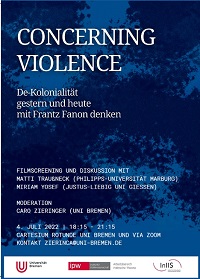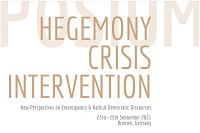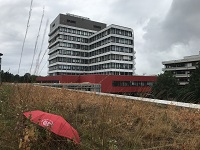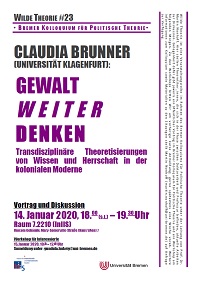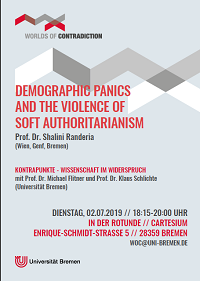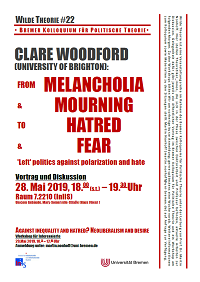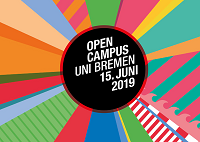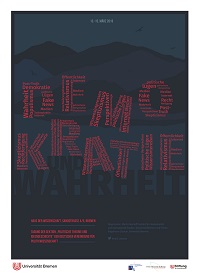Research and exhibition project on the early phase of Bremen UniversityCall for applications: 3 student assistants in the project "Tracing - Political struggles for the Bremen Model2
For the realization of a research and exhibition project on the history of the so-called "Bremen Model" under the direction of Sebastian Möller and Martin Nonhoff, which is supported by the project fund 50 Years of University Bremen, three student assistants are being sought for the period February to June 2021.
To the project
The aim of the project is to reconstruct political debates about the Bremen Model in the early phase of the University of Bremen using archival materials from the Bremen University Archive and relevant secondary literature, and to process the findings in a traveling exhibition. This exhibition is to be shown in the formats of the 50th anniversary celebrations (Open Campus, Campus City) and then as a touring exhibition on campus to provide impulses for an understanding of the political formability of the University in the past, present and future. At the same time, the digital processing of the exhibition contents on a blog and accompanying events with contemporary witnesses. The actual work in the archive and the exhibition is to be carried out by a core team of students, coordinated by three tudent assistants, each with their own area of responsibility (see below). This work will be accompanied and reflected in regular meetings of the extended project group, which includes interested university members of all status groups and various subjects.
Areas of responsibility
The student assistants jointly coordinate the work of the student core team and carry out all the necessary steps from archive work to the conception and creation of the exhibition in consultation with the project management. They should work as far as possible independently. In doing so, they assume one of the following areas of responsibility:
Process coordination: They are the central contact person for the project management and ensure that the project goals and deadlines are met. They moderate and document the work process.
Archive work: You are the central contact person for the University Archive and coordinate the research, selection and evaluation of archive material.
Exhibition conception: You are the central contact person for the project team "50 Years of University Bremen" and coordinate the conception and creation of the touring exhibition.
In addition to the 3 student assistant, other students are invited to participate as interns and volunteers. The task of the student assistants will be to coordinate the team and to take responsibility for the implementation.
We expect
Ongoing studies in political, historical or social sciences at the University of Bremen (Bachelor or Master),
Interest in the history of the University of Bremen
the confident command of the German language,
a reliable, conscientious, structured and goal-oriented way of working,
Willingness to take responsibility for the success of the project,
Readiness to archive archive and create exhibition materials,
Willingness to participate in any programs accompanying the exhibition at Open Campus Day 2021 and Campus City in the winter semester 2021/22,
Ideally previous experience in one of the main tasks
Hourly volume
The scope of work is 20 hours per month. The concrete working hours can be agreed upon in the team. The net remuneration is 11,13€ per hour. The contracts shall run from 01.02.2021 to 30.06.2021. A participation in the project beyond the contract period is desired (especially in the preparation and in the framework of Campus City in winter term 2021/22).
Application
If you are interested in one of the positions, please send your meaningful application in the form of a PDF file, consisting of a cover letter with motivation, curriculum vitae and a short essay on the Bremen Model (1 page, Why is the Bremen Model interesting or relevant?) by e-mail to Peter Arnhold (arnhold@uni-bremen.de) by 25.11.2020. Please make it clear in the cover letter for which of the three areas of responsibility you are applying and give a brief justification. The selection interviews are scheduled to take place on the morning of 03.12.
Further Information
If you have any questions about the positions, please contact Sebastian Möller (smoeller@uni-bremen.de) and Martin Nonhoff (mnonhoff@uni-bremen.de). If you are interested in participating in the project as an intern or volunteer, you are also welcome to contact the project leaders!
Translated with www.DeepL.com/Translator (free version)
 InIIS-Logo
InIIS-Logo

